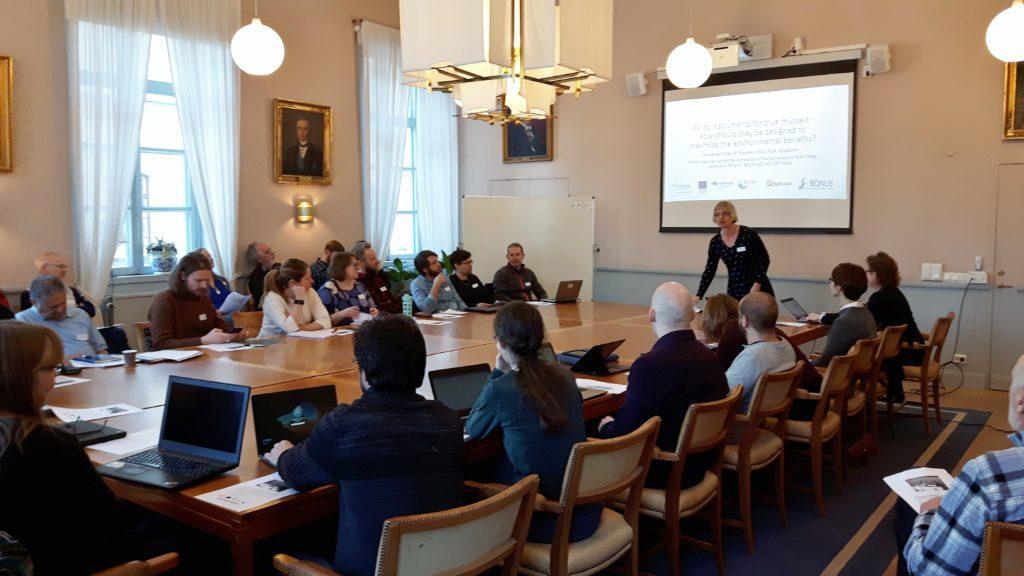On the 9th of February, Katarina Elofsson (SLU) organized and hosted a workshop at the KSLA (Kungliga Skogs- och Lantbruksakademien) in Stockholm. This workshop was organized within the framework of four EU-projects: NutriTrade, Baltic Blue Growth, BALTCOAST and OPTIMUS. Participants of the workshop included organizations from Sweden, Denmark and Finland within various municipalities, research institutes and academic institutions.
The focus of the workshop was to discuss how policy instruments for blue mussel cultivation and harvesting, as a means to reduce eutrophication of coastal waters, should be designed to maximize the environmental benefits. Furthermore, this workshop discussed how to promote high participation among mussel farmers and increase demand for mussels harvested.
Subjects covered from the presentations ranged a wide variety of issues, including measuring and overcoming uncertainties within mussel production, economic compensation and financing mechanisms for mussel farmers, enhanced dialogue and collaboration with industry and politicians as well as comparing the performance of mussel production against other abatement measures within the Baltic Sea. Focus was also given for enhancing and defining legal frameworks for municipalities and learning how the Danish experience can be adapted for mussel farmers in the Baltic Proper.
Conclusions from the workshop were that we should prioritize pursing funding opportunities in rural areas as well as improving the water quality. This should be done through economic incentives (focusing in particular on cost efficiencies) and conducting a medium-sized experimental policy scheme to determine what the largest uncertainties (environmental and economic) we face are.

